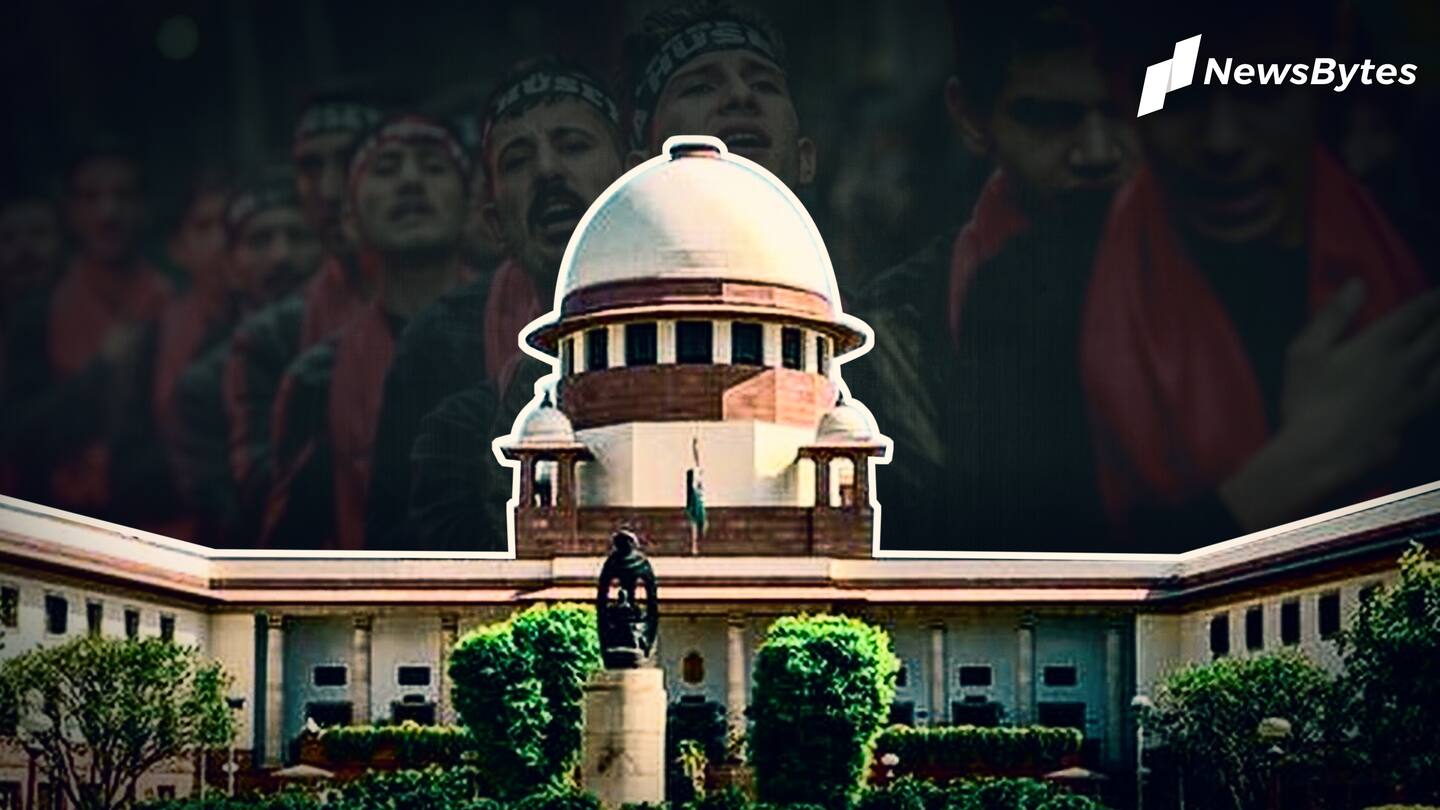
Supreme Court disallows Muharram processions citing coronavirus threat
What's the story
The Supreme Court on Thursday rejected a Public Interest Litigation (PIL) seeking permission for Muharram processions over the weekend.
The court asserted that a direction for the entire country could trigger chaos and that a particular community might later be blamed for coronavirus spread.
A three-judge bench, headed by CJI SA Bobde, was hearing a plea submitted by Uttar Pradesh resident Syed Kalbe Jawad.
Arguments
Petitioner cited examples of Rath Yatra, Jain festival
Making a case for Muharram processions, Jawad cited the example of Jagannath Puri Rath Yatra, which happened in June, and the relaxations given to Jain believers for the Paryushana festival last weekend.
The top court had permitted a limited number of believers at Jain temples in Dadar, Byculla, and Chembur.
As the bench heard the arguments, it noted that this case was different.
Statement
Can't pass orders for entire country: SC
SC told Jawad that the Rath Yatra and permission for Jains to visit their temples were restricted to a particular place.
"The difficulty is you are asking for a general order for the whole country. We cannot risk the health of all people. If you had asked for one place, we could have assessed the risk," Justice Bobde explained to the petitioner.
Direction
Approach HC for directions on Lucknow: SC told petitioner
The bench also said that states were not made parties. When the petitioner said he wanted permission for holding the procession in UP capital Lucknow, adding that a large number of Shia Muslims lived there, SC suggested approaching the Allahabad High Court.
"We cannot know what are the conditions there [in Lucknow]," the bench, also comprising Justices AS Bopanna and V. Ramasubramanian, said.
Details
Particular community will be blamed for coronavirus spread: SC
Moreover, CJI Bobde said that allowing the procession could have other repercussions.
"If we allow this procession across the country there will be chaos and one particular community will be targeted for spreading the pandemic," he said, referring to the controversy around Tablighi Jamaat's event in Delhi that turned into a super-spreader.
Not long ago, the Aurangabad bench of Bombay HC passed similar remarks.
Quote
Government tries to find a scapegoat during calamity: HC
"A political government tries to find a scapegoat when there is a pandemic or calamity and the circumstances show that there is a probability that these foreigners were chosen to make them a scapegoat," HC had said.
Tally
Over 60,000 dead in India, coronavirus numbers surging exponentially
To recall, religious processions were banned in March when the lockdown was enforced to contain the spread of coronavirus. Months later, some of the curbs are still in place.
Meanwhile, India is reporting a worrying number of fresh cases almost daily. On Wednesday, for the first time since the outbreak, over 75,000 new cases were reported.
India's tally stands at 3,315,017 and 60,652 deaths.